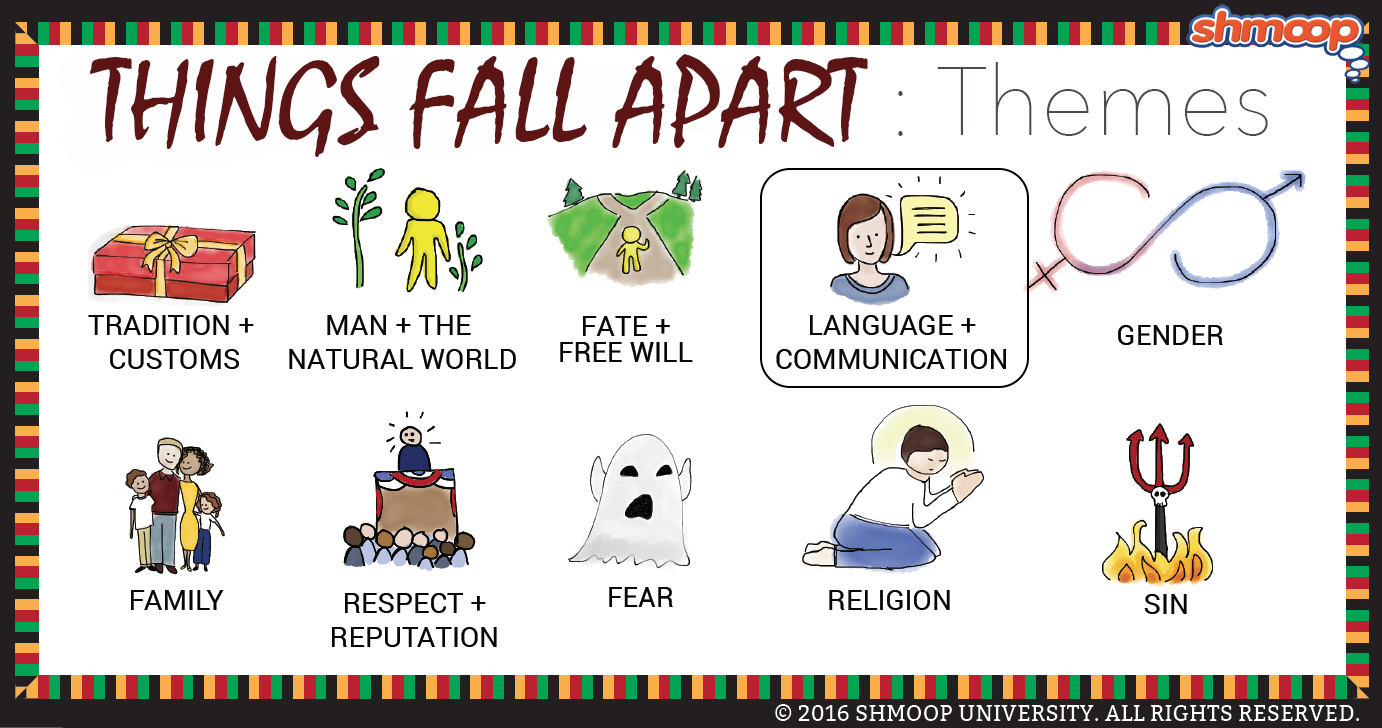 (Click the themes infographic to download.)
(Click the themes infographic to download.)
Speech is highly stylized in Igbo culture, with specific rules on how to addresses a neighbor, a superior, an ancestral spirits, and the gods. Respect is usually at the heart of formal speech. While dialogue is usually direct in its meaning, speakers often adorn conversations with proverbs or references to folktales, which play a profound role in shaping Igbo beliefs. Language, too, has a way of either including or alienating a listener. The gods have their own language which lowly humans cannot understand. The Christians speak English and require an interpreter to communicate with the Umuofia. However, interpreters are often from different parts of the country and have noticeable differences in speech. So concepts and connotations are inevitably lost in translation.
Questions About Language and Communication
- How do men of the Umuofia greet each other? How do they greet crowds of people when speaking? What is the underlying motivation of such speech?
- How is music – in particular drums – a language in itself? How does it set tones and convey information?
- Does Okonkwo communicate effectively with any of his family members or does he just expect to have his mind read? Does he like Ezinma so much because she understands him without him having to communicate verbally?
- How do gods and spirits address humans and how must humans greet these superior beings? What is the implication in each one’s address?
- Are important concepts of Christianity and Igbo beliefs lost in translation? Are important Igbo beliefs misunderstood by the Christians because of poor translation?
- Why is it dangerous to kill a man who is silent? Think about the Abame clan that was annihilated after killing a white man they were unable to communicate with.
Chew on This
The troubles in Okonkwo and Nwoye’s relationships are the result of bad communications; neither shares his emotions with each other and Okonkwo quickly jumps to aggressive physical action, which halts communication.